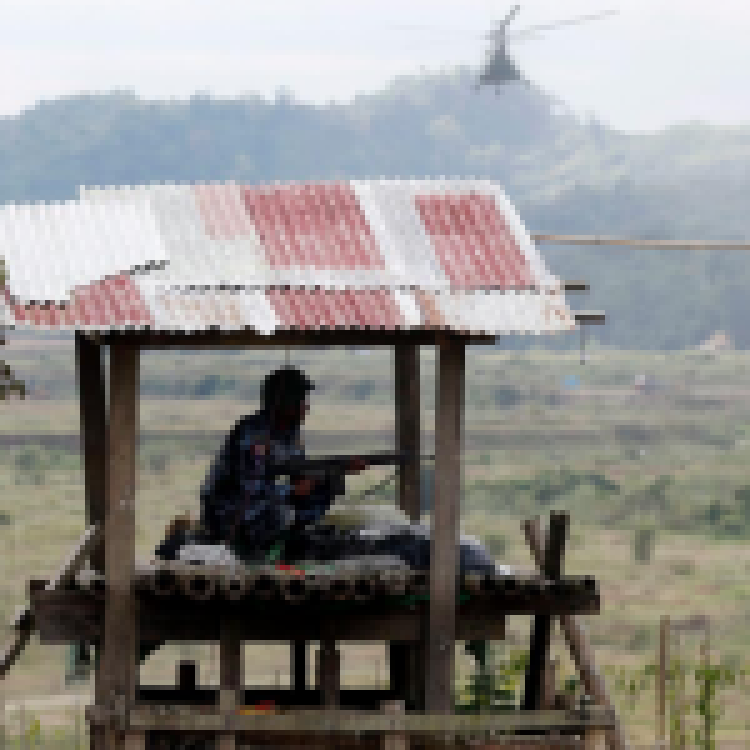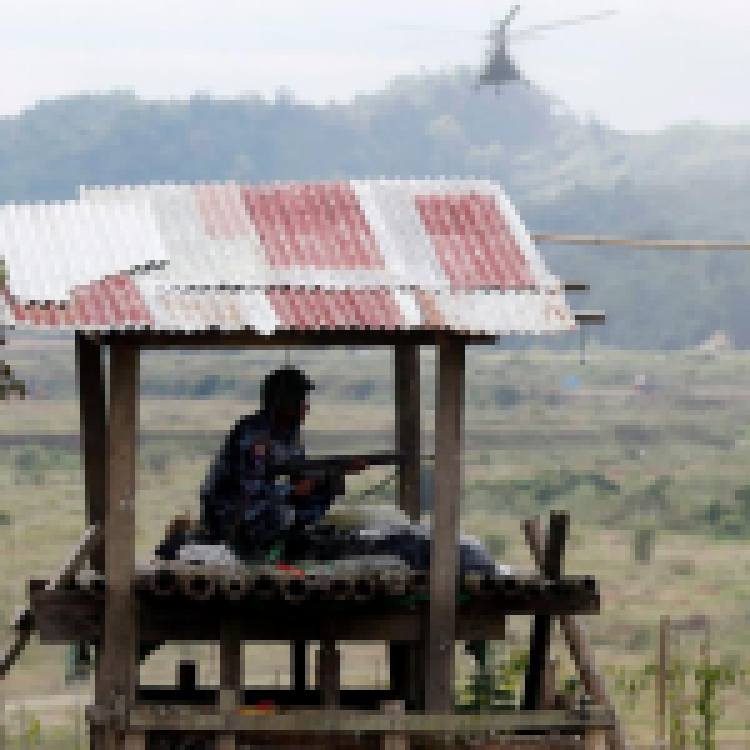<p>HRW has released a statement yesterday calling for the Japanese government to hold Myanmar accountable for the atrocities committed against Rohingya and other ethnic minorities, as well as to discourage investment that will benefit Myanmar’s military, the Tatmadaw. </p>
<p>In 2018, the UN accused Myanmar of genocide in response to a brutal ethnic cleansing against the Rohingya people in 2017. This forced over 740,000 Rohingya to flee to Bangladesh. Over a million reside in overcrowded camps in Bangladesh whilst another 600,000 remain in Myanmar, confined to camps and villages.</p>
<p><strong>Read more here: <a href="https://www.tamilguardian.com/content/un-report-accuses-myanmar-committ…">UN report accuses Myanmar of committing genocide against Rohingya</a></strong></p>
<p>In August 2019, a UN Fact-Finding Mission released a report on the Tatmadaw’s control over the country’s economy and noted that its main businesses had generated a great deal of revenue and influence by supporting the ““the Tatmadaw’s autonomy from elected civilian oversight and provid[ing] financial support for the Tatmadaw’s operations with their wide array of international human rights and humanitarian law violations.”</p>
<p>HRW maintains that Japanese investors should following the Guiding Principles on Business and Human Rights, which asserts that businesses should respect human rights and avoid contributing or enabling them.</p>
<p>In October 2019, Japanese Prime Minister Shinzo Abe met in Tokyo with Myanmar’s military commander-in-chief, Sr. Gen. Min Aung Hlaing, who the maintains should be investigated for “genocide, crimes against humanity, and war crimes” against the Rohingya and other ethnic minorities in Myanmar.</p>
<p>HRW notes that during this meeting Abe advised Hlaing to address allegations of human rights abuses and take up proposals listed in “the government’s discredited International Commission of Enquiry but ignored international efforts to address accountability”.</p>
<p>Phil Robertson, deputy Asia director at Human Rights Watch has described Japan’s response as “pitifully reluctant”.</p>
<p>“Encouraging foreign investment while ignoring human rights will only embolden the Myanmar government and military to further whitewash the heinous acts committed against the Rohingya […] Not only have military commanders evaded justice for their widespread crimes but they have done so while sabotaging the country’s economic and democratic growth.”</p>
<p>Read HRW full statement here.</p>
We need your support
Sri Lanka is one of the most dangerous places in the world to be a journalist. Tamil journalists are particularly at threat, with at least 41 media workers known to have been killed by the Sri Lankan state or its paramilitaries during and after the armed conflict.
Despite the risks, our team on the ground remain committed to providing detailed and accurate reporting of developments in the Tamil homeland, across the island and around the world, as well as providing expert analysis and insight from the Tamil point of view
We need your support in keeping our journalism going. Support our work today.




